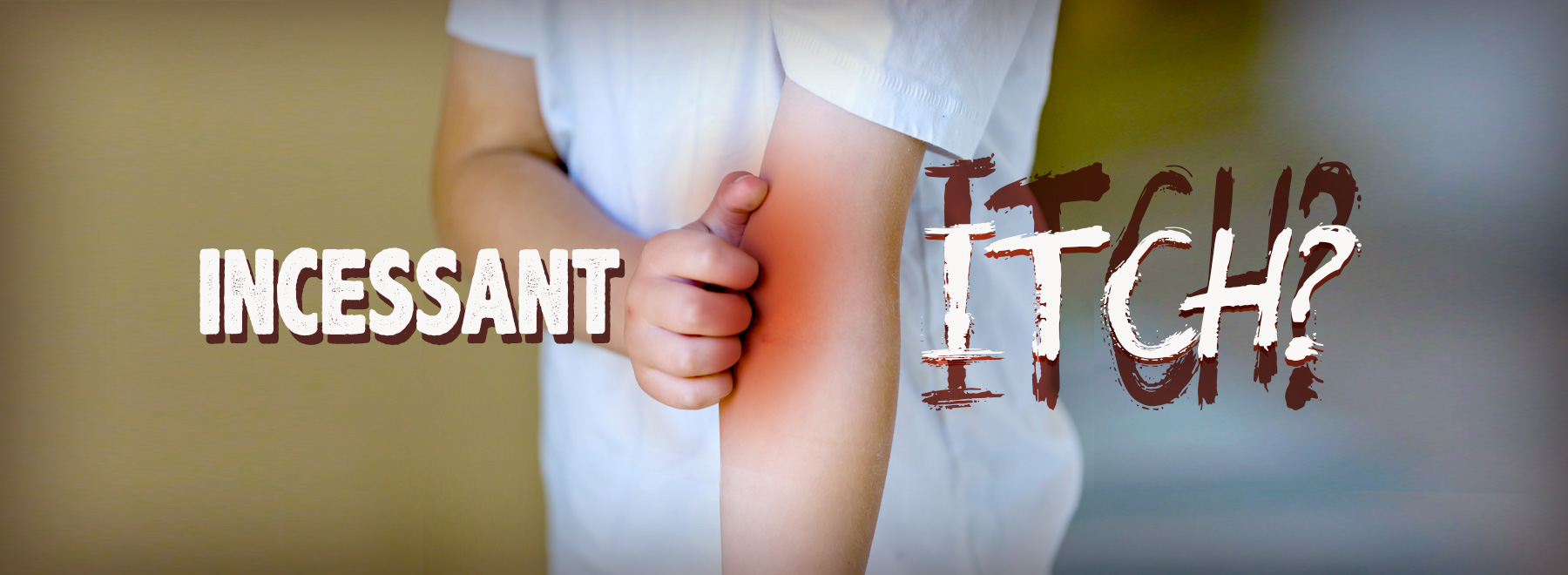Research ‘scratches the surface’ of new treatment approaches
Tired of popping an antihistamine pill or rubbing on the cream version for an itch that just won’t let up?
New research is identifying drugs and other therapies that give relief to chronic itch sufferers, bringing to an end the era of antihistamines as the usual – or for some, the only – treatment approach.
And dermatology professionals are increasingly looking beyond the symptoms of itch, drilling down to why the patient has the urge to scratch in the first place.

“It’s critically important to get to the root cause of the itch,” said Dr. Robert Brodell, professor and chair of the Department of Dermatology at the University of Mississippi Medical Center.
“If we see someone with scabies, we might give them something for their itching, but we want to kill the scabies mites. If you don’t do that, you are doomed to failure.”
The medical term for itching is pruritus. What causes you to itch, and to feel better after scratching an itch, is a process that begins with the irritation of skin cells or of nerve cells associated with the skin.
Itching begins when itch-sensing nerve endings, or pruriceptors, are stimulated by either mechanical, thermal or chemical “mediators,” such as histamines produced during immune responses or prostaglandins that create the sensation of pain in spinal nerve cells. Often, the stimulations can be triggered by inflammations.
Many people find relief when they’re prescribed drugs used primarily for another purpose – say, depression, migraines, organ transplant rejection or renal disease – though others respond well to topical antihistamines or anesthetic creams and lotions that have been on the market for decades.
Better understanding what’s behind a person’s individual itch, including causes rooted in the neural system, gives researchers the knowledge they need to test and produce targeted therapies for a particular itch disease state.
Sometimes, the reason why we itch is a mystery. Treatment might not work. Itching also can be a symptom of something more serious than just being compelled to scratch.
“In most circumstances in dermatology, we can make a diagnosis,” Brodell said. “We want to treat the condition, not the itch. But there are times we will treat people for parasites, do biopsies, blood work and everything we can think of, but we still have no idea what is causing the itch.”
Scratching and rubbing interferes with the itching sensation – but as many people experience, they only bring temporary relief, and sometimes makes the itch worse.
“Evolutionally, you would want to scratch,” Brodell explained. “When God invented people and evolution, there were reasons why, if something was crawling on your skin, you would want to get it off your skin, especially if it bites you.
“But as you can also imagine, itching can be a double-edged sword. Scratching can produce more inflammation, which can make more itching, which can make more scratching.”
Researchers are learning about receptors that explain why people itch at all, Brodell said.
“If we attack the mediators that cause itch, we might be able to do better than antihistamines.”
Although new drugs for chronic itching are making their way to the market, don’t count on one pill to conquer all itches. That’s because itching is a very complex phenomenon, and the mechanisms involved are different from disease to disease, drug to drug and patient to patient, Brodell said.
The above article appears in CONSULT, UMMC’s monthly e-newsletter sharing news about cutting-edge clinical and health science education advances and innovative biomedical research at the Medical Center and giving you tips and suggestions on how you and the people you love can live a healthier life. Click here and enter your email address to receive CONSULT free of charge. You may cancel at any time.



